‘Bad King John’ Of England: His Lost Treasures Have Never Been Found
A. Sutherland - AncientPages.com - The legend of King John's lost treasure has been handed down from generation to generation.
However, it is not only a legend.
John was King of England from 1199–1216. He proved to be a total failure as a ruler. Between 1202 and 1204, the King of France managed to capture most of the lands in France held by John. Afterward, John was given the nickname 'soft sword.'
He acted King from 1189 when his brother Richard the Lion-Heart was on the Third Crusade.
'Lackland' was John's other nickname, most probably because, as the youngest of Henry II's five sons, it was challenging to find a portion of his father's French possessions for him to inherit.
Involved in intrigues against his absent brother, John eventually became King in 1199 when Richard the Lionheart was killed in battle in France. After that, he was portrayed as 'Bad King John.'
Ancient sources say that John ruled like a tyrant. To pay for the war with France, he raised taxes – imposing a special tax on Jews – and enforced feudal prerogatives. He was accused of extorting money from people and selling offices.
King John's Tomb, Worcester Cathedral Set before the high altar, his tomb is made of dark Purbeck marble topped with an effigy. When King John lay dying of his famous "surfeit of peaches" in 1216, he asked to be buried in Worcester Cathedral. Image credit: Bob Embleton - CC BY-SA 2.0
'Bad King John' had a great hobby: collecting jewelry. He was particularly fond of collecting (stealing) jewelry for himself and coinage for his guards and soldiers. He owned a hoard of gold and silver plates and other valuables, of which the most valuable were the imperial regalia he had inherited from his grandmother, the Empress of Germany.
On 12 October 1216, John lost all of his treasure when he tried to take a shortcut across a stretch of water in Wash, the large bay that separates East Anglia from Lincolnshire.
This particular region of marshes and mudflats was usually traversable at low tide but not otherwise. The tide rose faster than the King expected. He misjudged the power of the wave, leading to the advancing waters claiming his precious baggage train. John's baggage, which supposedly included all royal treasures, including the Crown Jewels and gold coins, was engulfed in a raging whirlpool.
King John of England, 1167-1216 on hunt. Public Domain
'Bad King John' lost everything. He died only a few days later, on 18 October 1216, at Newark.
What happened to John's treasure carts? Is John's treasure buried somewhere in the area of Sutton Bridge? Treasure hunters from the USA and England have attempted to locate the exact location of the incident. Even a team of researchers from Nottingham University took soil samples to shed some light on the incident in 1216.
The search goes on because, as you know, treasure hunters never lose hope of finding what they are looking for.
Written by – A. Sutherland - AncientPages.com Senior Staff Writer
Updated on March 27, 2024
Copyright © AncientPages.com All rights reserved. This material may not be published, broadcast, rewritten or redistributed in whole or part without the express written permission of AncientPages.com
Expand for referencesReferences:
T. Carte, A General History of England
Ralph V Turner, King John: England's Evil King?
More From Ancient Pages
-
 Noppera-bo: Odd Intimidating Human-Like Faceless Yokai In Japanese Folklore
Japanese Mythology | Jul 23, 2024
Noppera-bo: Odd Intimidating Human-Like Faceless Yokai In Japanese Folklore
Japanese Mythology | Jul 23, 2024 -
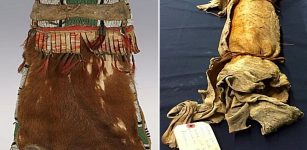 Sacred Medicine Bundle With Relics Of The First Ancestors Or Given By The Gods
Ancient Traditions And Customs | Sep 15, 2016
Sacred Medicine Bundle With Relics Of The First Ancestors Or Given By The Gods
Ancient Traditions And Customs | Sep 15, 2016 -
 A 2,700-Year-Old Urartians’ Ayanis Castle And Haldi Temple – Soon An Open-Air Museum
Archaeology | Aug 10, 2020
A 2,700-Year-Old Urartians’ Ayanis Castle And Haldi Temple – Soon An Open-Air Museum
Archaeology | Aug 10, 2020 -
 The ‘Stonehenge Calendar’ Is Much More Modern Than Previously Thought – Scientists Say
Archaeoastronomy | Mar 24, 2023
The ‘Stonehenge Calendar’ Is Much More Modern Than Previously Thought – Scientists Say
Archaeoastronomy | Mar 24, 2023 -
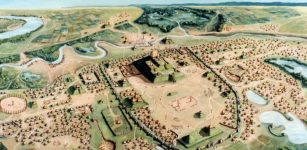 Story About Cahokia’s Lost Civilization Is Wrong – Archaeologist Says
Archaeology | Feb 14, 2020
Story About Cahokia’s Lost Civilization Is Wrong – Archaeologist Says
Archaeology | Feb 14, 2020 -
 Central European Early Iron Age ‘Hascherkeller’ Reveals Its Secrets
Archaeology | Jul 20, 2022
Central European Early Iron Age ‘Hascherkeller’ Reveals Its Secrets
Archaeology | Jul 20, 2022 -
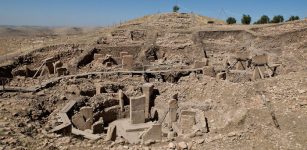 This Is The Mysterious Hilltop Where Civilization Began Scientists Say
Archaeology | Jun 24, 2022
This Is The Mysterious Hilltop Where Civilization Began Scientists Say
Archaeology | Jun 24, 2022 -
 Modern Human DNA Contains Bits From All Over The Neanderthal Genome – Except The Y Chromosome. What Happened?
DNA | Jul 2, 2024
Modern Human DNA Contains Bits From All Over The Neanderthal Genome – Except The Y Chromosome. What Happened?
DNA | Jul 2, 2024 -
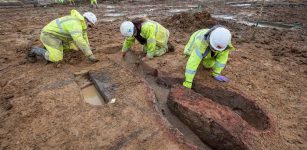 Discovered Roman Malting Oven Could Be Evidence Of 2,000-Year-Old Beer Production In The UK
Archaeology | Apr 4, 2022
Discovered Roman Malting Oven Could Be Evidence Of 2,000-Year-Old Beer Production In The UK
Archaeology | Apr 4, 2022 -
 Rare Preserved Written Account Of North America’s Ancient Lost Civilization Of Tall Beings From An Unknown Land
Featured Stories | Aug 25, 2024
Rare Preserved Written Account Of North America’s Ancient Lost Civilization Of Tall Beings From An Unknown Land
Featured Stories | Aug 25, 2024 -
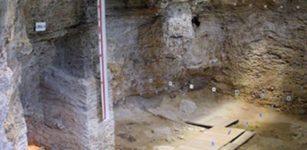 Abric Romaní Cave: New evidence indicates Neanderthals used to heat water some 60,000 years ago
Human Beginnings | Aug 31, 2015
Abric Romaní Cave: New evidence indicates Neanderthals used to heat water some 60,000 years ago
Human Beginnings | Aug 31, 2015 -
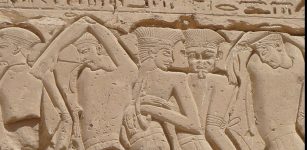 Mysterious Sea People: Many Theories But Their Origin Is still Unknown
Civilizations | Feb 24, 2015
Mysterious Sea People: Many Theories But Their Origin Is still Unknown
Civilizations | Feb 24, 2015 -
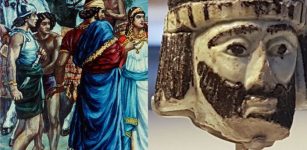 Enigma Of 3,000-Year-Old Sculpted Head Of Biblical King Discovered In Israel
Archaeology | Jun 11, 2018
Enigma Of 3,000-Year-Old Sculpted Head Of Biblical King Discovered In Israel
Archaeology | Jun 11, 2018 -
 Rapa Nui’s Population: Growth And Decline – Lesson For Our Future?
News | Sep 4, 2020
Rapa Nui’s Population: Growth And Decline – Lesson For Our Future?
News | Sep 4, 2020 -
 Did First Settlers From Asia Reached America By ‘Stepping Stone’ Migration Across Bering Sea?
Archaeology | Apr 30, 2021
Did First Settlers From Asia Reached America By ‘Stepping Stone’ Migration Across Bering Sea?
Archaeology | Apr 30, 2021 -
 Surprising Evidence Of 12,000-Year-Old Unknown Advanced Secret Knowledge Held By Elite Individuals – The Connection – Part 2
Ancient Mysteries | Feb 7, 2021
Surprising Evidence Of 12,000-Year-Old Unknown Advanced Secret Knowledge Held By Elite Individuals – The Connection – Part 2
Ancient Mysteries | Feb 7, 2021 -
 Advent: Facts And History About The Christian Season Celebration
Christmas Traditions | Dec 1, 2024
Advent: Facts And History About The Christian Season Celebration
Christmas Traditions | Dec 1, 2024 -
 Samurai – Powerful Skilled Warriors Who Loved Music, Art And Poetry
Featured Stories | Dec 9, 2017
Samurai – Powerful Skilled Warriors Who Loved Music, Art And Poetry
Featured Stories | Dec 9, 2017 -
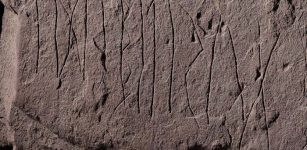 Mysterious Svingerud Stone – World’s Oldest Rune Stone With Enigmatic Inscriptions Investigated By Experts – What Does It Say?
Archaeology | Jan 17, 2023
Mysterious Svingerud Stone – World’s Oldest Rune Stone With Enigmatic Inscriptions Investigated By Experts – What Does It Say?
Archaeology | Jan 17, 2023 -
 The Untold Story Of The Great Sphinx – Puzzling Discoveries – Part 2
Ancient Mysteries | Aug 13, 2019
The Untold Story Of The Great Sphinx – Puzzling Discoveries – Part 2
Ancient Mysteries | Aug 13, 2019



